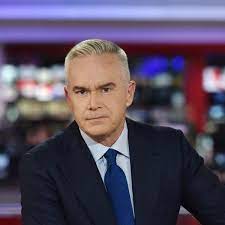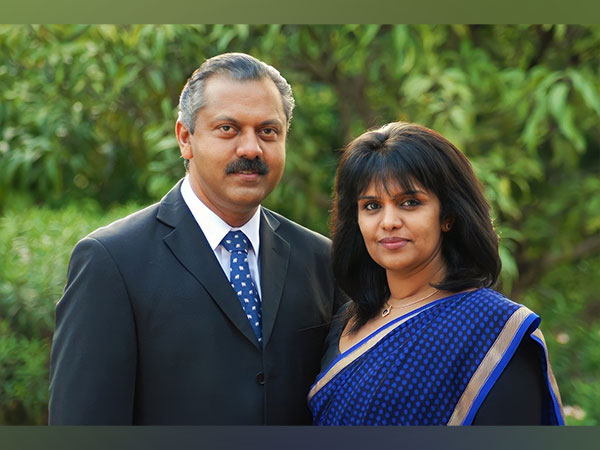Huw Edwards and the media scandal gripping the UK
Jul 13, 2023
Britain [UK], July 13: For twenty years, Huw Edwards anchored the BBC's flagship News at Ten programme - watched by millions each weeknight for the latest on the day's news.
But now he has been identified as the presenter at the centre of allegations about his conduct, following five days of speculation and mounting claims published across Britain's media, including by colleagues at BBC News.
As the BBC's most senior news anchor, Edwards has been a fixture of some of the UK's most historic national moments.
The 61-year-old was the person who informed millions of television viewers across the world that Queen Elizabeth II had died.
He led an extraordinary ten days of live coverage of mourning, culminating in the late Queen's funeral. His voice has narrated royal weddings and the coronation of King Charles III. And he has announced the general election results.
In a statement on his behalf, Edwards' wife Vicky Flind confirmed he was the presenter involved and said he was in hospital after a serious mental health episode.
He would respond to the stories published about him when well enough to do so, she said.
"It is a reminder that the last few days have seen personal lives played out in public," BBC director general Tim Davie wrote to staff. "At the heart of this are people and their families."
What are the allegations?
On Friday, the Sun newspaper published a story that said an unidentified presenter for the BBC was accused of paying thousands of pounds to a young person, now 20, over a number of years, for explicit photographs.
In an interview, the mother of the young person expressed her concern about the payments and her worry they were funding her child's crack cocaine habit.
Over subsequent days, a drip feed of further allegations was published by the Sun, and then by BBC News, which reports independently on the BBC as if it were any other organisation.
On Sunday, the BBC admitted it received a complaint linked to the Sun's initial allegations seven weeks before they were pursued by the newspaper and that it had suspended a male member of staff.
The next day, a lawyer for the young person involved said the Sun's story was "rubbish" and denied anything criminal took place.
It was not long before further, and different, allegations involving the presenter were made in reports by the Sun and by BBC News.
These included claims of "menacing" messages to a person in their 20s, a visit to another person during a coronavirus lockdown, and inappropriate messages to a BBC staff member.
A series of developments came within a ten-minute period on Wednesday as the Metropolitan Police said it had found no evidence of criminality in its review of evidence, and the BBC said its internal corporate investigation would continue as a result.
Then Huw Edwards' identity as the BBC presenter was confirmed in a statement issued on his behalf by his wife.
Why wasn't Huw Edwards named?
Unlike the United States, the UK does not have a sweeping First Amendment to protect free speech and therefore most news reporting.
A combination of privacy and defamation laws govern how the UK media report stories and identify subjects of allegations.
Since a major UK Supreme Court ruling last year, the right to privacy includes people who are under investigation by a law enforcement agency - meaning the stage before they have been formally charged with a crime and sent to the courts.
Edwards was never under formal investigation by police.
Meanwhile, UK defamation law protects any individual's reputation from the massive harm caused by lies.
It was famously invoked in the UK by Johnny Depp in his case against a UK tabloid, which was forced to defend its description of him as a "wife beater".
The tabloid's defence relied on testimony from Depp's ex-wife Amber Heard, and Depp lost his libel case in London.
As if to demonstrate the differences in the UK's legal landscape, Depp later won an almost identical case in the US, prompting a settlement from Heard.
So the decision not to name Edwards for so long rested on the high legal risk of a case being brought under the privacy or defamation laws - or even a combination of these.
The denial of the initial allegations by the young person involved further raised the bar in terms of naming the presenter.
In recent years, it has faced major questions over how it handled false allegations against the singer Sir Cliff Richard in 2018, what it knew about prolific paedophile Jimmy Savile at the BBC, and even how it secured its controversial interview with Diana, Princess of Wales in the 1990s.
Outside the UK, the BBC is largely funded through advertising. But in Britain, it is paid for by a publicly funded licence fee - a mandatory charge levied on every household with a television.
It supplies households with television content, including news, live sports, dramas and current affairs programmes. It broadcasts across dozens of local and national radio stations. It offers a streaming platform, news and sport websites, and even an app for weather forecasts.
The BBC's public funding model in the UK rightly leads to scrutiny of the BBC and those who work for it. It also raises criticism, of the licence fee, its output, and of the BBC's dominant position in the UK media landscape.
What happens next?
Huw Edwards will respond to stories published about him when he is able to do so, his wife has said.
The BBC has said its corporate investigation will continue now that the police have ruled out criminality.
But questions remain for the BBC in what it knew of the allegations, and when, and over its response to them.
The Sun newspaper has said it will cooperate with the BBC, and that it has no plans to publish further allegations about Edwards.
"This remains a very complex set of circumstances," BBC boss Mr Davie has said.
Source: Fijian Broadcasting Cooperation








